“To find true happiness in life you have to follow your heart and intuition. You have to be who you are, and design a lifestyle and career that fulfils you no matter what that entails or what people say about it. And it is never too late to do so…”
This is the story of how I became a blogger…
When I was a school kid, the language readers were full of stories meant to impart moral and ethical learning at an impressionable age. I loved stories and tried to read it even outside my schoolbooks. Since my schooling as a whole was through the medium of my mother tongue (Malayalam), I had little knowledge of English. Obviously, I had no idea about English books or authors. I eventually joined a city college and the medium of instruction became English.
The college had a library that was huge beyond all my imaginations at that stage. I was amazed by the rows and rows of racks filled to the ceiling with bulky books. The first book I received on joining the college was in English. It was also the biggest volume I had ever held in my hands until then. It was a book on books – the catalogue of books in the library.
I leafed through the catalogue and arrived at the English Literature section. The only title I had ever heard of in there was ‘The Merchant of Venice’ by William Shakespe are. An abridged translation of this play was one of the stories I had read at school. It always thrilled me to read the story narrating how a poor debtor was delivered from the hands of a ruthless moneylender through the intervention of a smart lawyer. Wanting to read the story in English, I submitted a requisition for it to the library. Honestly, I had no idea who Shakespeare was. I was also completely ignorant about the nature of stuff he wrote. I asked for the book simply because it was the only English literary title, I assumed, I knew.
are. An abridged translation of this play was one of the stories I had read at school. It always thrilled me to read the story narrating how a poor debtor was delivered from the hands of a ruthless moneylender through the intervention of a smart lawyer. Wanting to read the story in English, I submitted a requisition for it to the library. Honestly, I had no idea who Shakespeare was. I was also completely ignorant about the nature of stuff he wrote. I asked for the book simply because it was the only English literary title, I assumed, I knew.
The college library issued books during lunch break. I went to the library to collect my book. The librarian placed a massive, hardbound book on the counter. I was rather puzzled. The story I had read in the school hardly had three or four printed pages. How could such a simple story take up such a fat volume? I was certain that there was a mistake. So, I conveyed my thought to the librarian. Librarians had much patience those days, I suppose. The guy pulled out the requisition I had given and signalled me to compare the titles. I compared and discovered the truth that I got exactly what I had asked for.
To say that I was deeply embarrassed would be an understatement. But I could not let the librarian know of my discomfort. So I tried to put up a brave face hoping that the librarian did not know that I had my schooling in the medium of my mother tongue and that the book in my hand was the first English literary title I had ever touched. I lugged the huge volume home, finished my assignments for the day and opened it. My eyes almost popped out of its sockets. There was no story. The whole thing was poetry. I wondered whether the book was actually written in English. If it was English, it was a weird kind of English indeed. The painful reality then sunk in. It would be a long route to reading English writings.
I kept the book for a few days in an attempt to create the impression that I was reading it. I did not then know that librarians hardly ever bothered about who reads what books when. I returned the book a few days later. That was how I got introduced to English literature – quite a smashing one, I suppose. That a teenager with little knowledge of English should be introduced to the English literary world through a work of the great Bard of Avon is no small matter. The boy certainly must be genius. Elementary my dear Watson!
But the teenager was no genius. He was destined to spend his whole working life writing nothing more literary than prosaic prose in dusty Sarkari files. So, my professed circumspection with regard to writing in English was real. Although, I eventually obtained a Master Degree in English Language and literature, read a bit of English writings and gathered up a reasonable vocabulary, I was never comfortable with English – particularly with its confounding rules of grammar.
Yet, as a kind of reading and thinking person, I had always harboured dreams of writing. But I never dared to write. Then I happen to come across the story of how a medical doctor became a celebrated English author. And the decision to write was made.
I summarize the story below:
He was not a bad doctor, had enjoyed steady patronage and was making money. But he was not very happy about his life or his profession. He tried to specialize in various branches one after the other only to discard each midway for pursuing another. He was unsure of himself, did not stick to anything for long and was distressed. But he did not know the cause of his distress. Eventually, he developed indigestion, an illness directly linked to stress, and went to consult a friendly colleague. He was diagnosed with gastric ulcer and was sentenced to six month’s complete rest in the country on a milk diet.
Thus, this doctor was sent to a small farmhouse in an isolated village in the Scottish Highlands. A man who had been working all days and late into most nights in the city of London suddenly found himself stranded in a desolate farm with nothing worthwhile to do. “I was reduced to feeding the chickens and learning to greet the disapproving cattle by their Christian names”, he writes. The state of complete inactivity was agonising. He was lonely in a remote corner of the world with more or less his gastric ulcer alone as company. The poor farmer and his wife were no worthwhile company for an urban professional. The doctor faced a fatal problem – the problem of idleness. He had to find something to do. He mulled over the matter.
Then a sudden idea occurred to him. He thought that he could write. He had been nursing such a desire for long. In fact, some vague ideas of a novel had been slumbering at the back of his mind for a while. He had suggested to his wife that he wanted to become an author. But his wife knew pretty well about his many pranks and ever shifting cranky ideas about what he wanted to do next. So she just swept it aside with a patronizing smile and waited for his next idea to pop up. But somehow, the doctor thought that writing was simply his destiny in life. That he had become a doctor and attempted a plethora of specializations but completed none had all happened as part of the process of his search for his destiny. He was sure that he had finally zeroed in on the purpose of his existence. Gastric ulcer or no gastric ulcer, he had to write that novel.
Having resolved to pursue his writing ambitions, he went out and purchased a set of exercise books. The next morning, he settled down to write. With one of these notebooks open on the table, he sat there. Then the reality struck him. In his whole life, he had never written anything more literary beyond the medical prescriptions he had been scribbling. Three hours later when the farmer’s wife called him to lunch, the first page in the exercise book stayed blank staring at him. He did not know how to proceed. But he heard his old schoolmaster’s sharp advice in his head, “Get it down. If it stops in your head, it will always be nothing”. So he went back to his open exercise book after lunch determined “to get it down”.
For the next three months, he struggled to get it down. He had no knowledge of style, form or techniques of writing. He had never seen a thesaurus. He spent hours looking for an apt adjective. “I corrected and re-corrected until the page looked like a spider’s web. Then I tore it up and started all over again”, he writes. His rate of progress improved from 800 words a day to 2000 words a day by the second month. But half way through, he was again stricken with panic. He had sent the hand written material to his secretary in London. It came back typed. He read the stuff. He was appalled to read what he had written. “Never, never had seen such nonsense in all my life”, he says. “No one would read it”. In his utter disenchantment with his work, he bundled up everything and threw it into the ash can outside. There was a slight drizzle. He went out on a walk through the farm.
Along the way, he came across the farmer. He was labouring patiently to ditch a patch of the bog in an effort to make it arable. The farmer knew about the writing project of the doctor and was surprised to see him on the field at that time. The doctor broke the news of his decision to give up his dream of turning a novelist. The farmer quietly listened. After a long while the farmer spoke. He said, “My father ditched this bog all his days and never made a pasture. I have dug it all my days and never made a pasture…But pasture or no pasture, I cannot help but dig. For my father knew and I know that if you only dig enough, a pasture can be made here”.
The farmer’s reaction surprised and sobered the doctor. He felt ashamed that he had to learn such basic truths of life, from an unschooled peasant. He walked back to the farmhouse, drenched, disquieted and furious. He picked up his literary work from the ash can. It was all wet. He dried it in the kitchen oven and flung it on the table. And then he started writing as a man possessed. He wrote with such speed and frenzy that by the end of the third month, the novel was finished. He then picked up a London publisher blindly from a catalogue he found and sent the manuscript to them. The matter was forgotten.
He regained his health in a short while. At last, it was time for our man to leave the farm. He went around the village taking leave of the simple peasant folks who had become close to him during his tenure in the farmhouse. As he entered the post office, the postmaster presented him with a telegram. It was an invitation to meet the publisher urgently. He ran back to the farm and announced the news to the farmer.
The novel that was once discarded into the ash can was chosen by the Book Society, dramatized, serialized, bought by Hollywood and was translated into nineteen languages. Millions of copies of the book were sold. The biographical essay in which the author tells this story does not mention the name of the book. I gather that it was ‘The Hatter’s Castle’. With that novel, its author A J Cronin’s life changed beyond the wildest of imaginations. That change was triggered by the soulful words of an unlettered farmer in a remote Scottish countryside who understood a fundamental life truth that the virtue of all achievement is the victory over oneself.
“If a doctor could write and succeed , there is no reason why an accountant cannot write and fail. The fear of failure cannot be a reason for not trying.”, I told myself. Then I sat down and wrote the heading of my first blog post, “You Are Your Own Worst Enemy”.
Post Script
I have since authored two books in English, each running to around 600 pages – I am Who I am:The Story of Jewish Religion and Politics from Creation to the Current Times for 21st Century Readers (ISBN: 978-93-5382-256-9) and The Kingdom, the Power, the Glory: The Story of Christianity from Christ to the Current Times for 21st Century Readers (ISBN: 978-93-5382-163-0)
———————

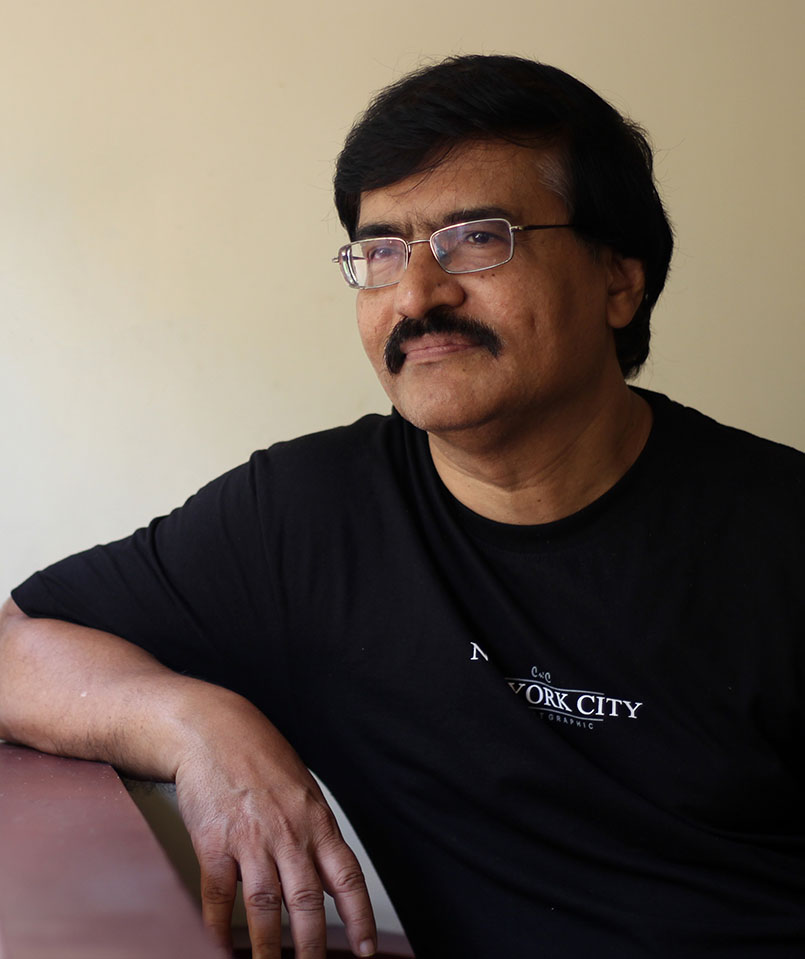
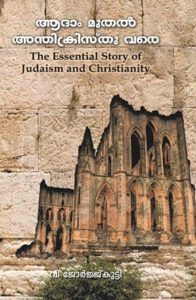
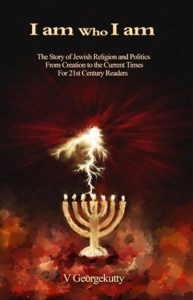
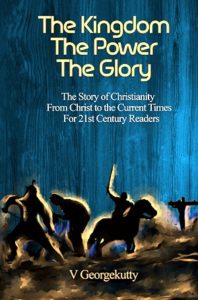



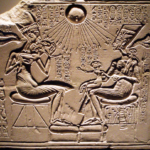

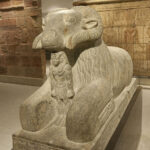
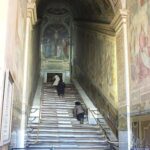
Nice,Simple and unheard passage of a doctor who became a writer.
An old hindi proverb goes like this 'karat karat abhyas jadmati hot sujan, awat jawat rasri sil pad padat nisan'( a crude translation:Persistence makes even a dumb man intelligent, just like a rope, when rubbed continuously on stone makes a mark on it.). Wisdom as they say is gained and never taught! Inspiring piece, indeed, Sir. adarsh